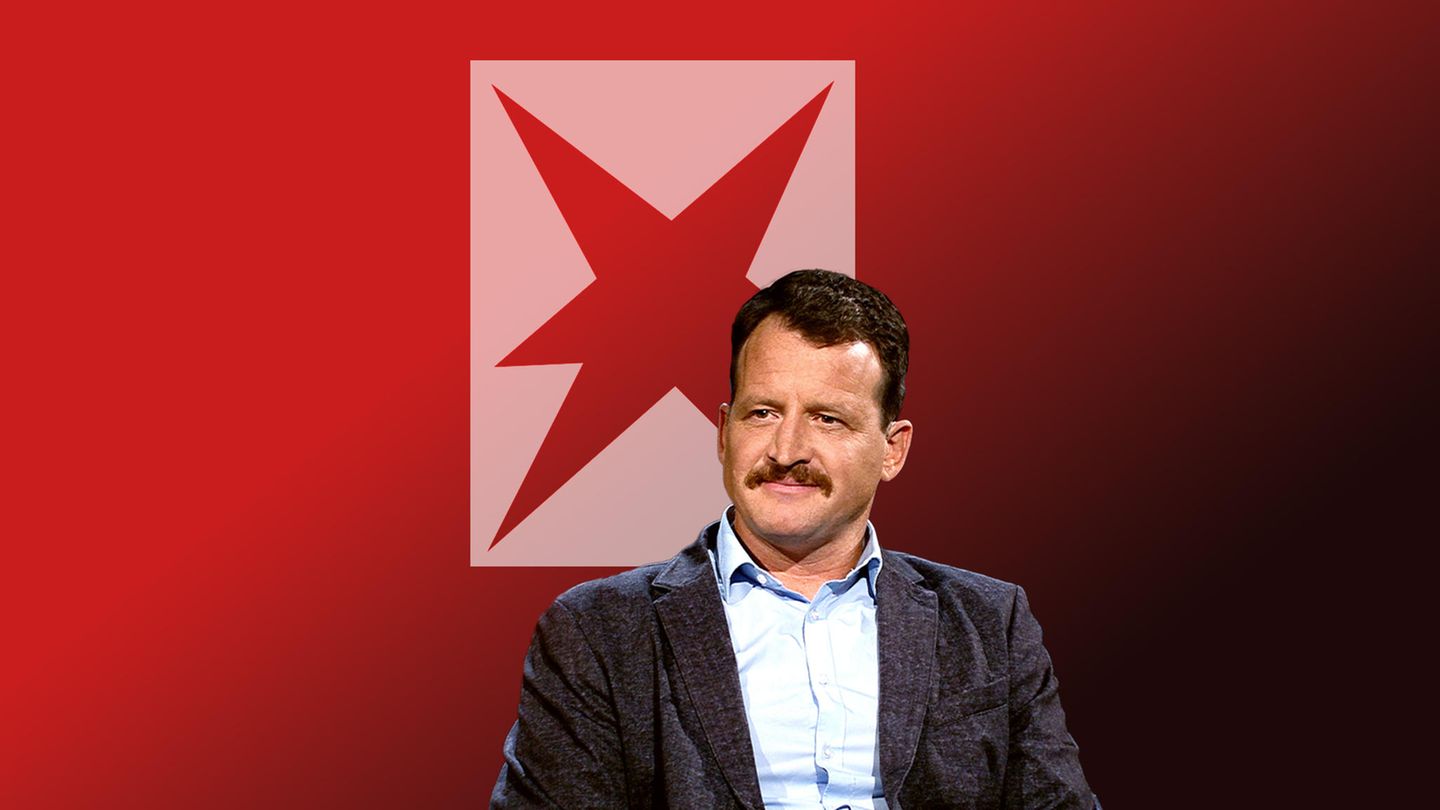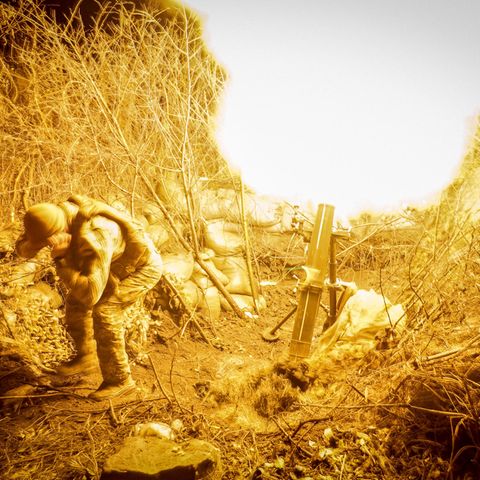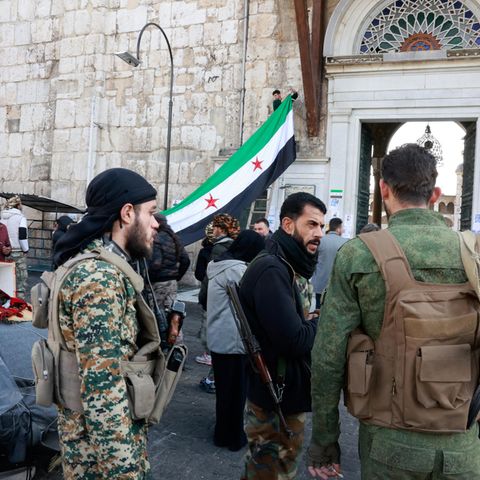Copy the current link
On a spontaneous trip while doing research in Ukraine, Moritz Gathmann meets two soldiers – and notices how burnt out the people have become.
Ihor, that’s what he will be called here, is sitting with a fishing rod on the shore of a lake in the middle of the gentle, dry hilly landscape of Donbas on this unusually hot October day. At 25 years old, the sniper is one of Ukraine’s best, has had two winters of war behind him, experiences that one can hardly imagine, and has lost most of his comrades in the battles of the last few months. And comrades.
I owe the acquaintance to the Czech photographer Stanislav Krupar, with whom I have traveled in this area several times. Stanislav has known this unit almost since the beginning of the war and has earned the trust of the soldiers and commanders over the months and years.
There is an assault rifle between the sausage and bread
And so that day on the way back from the city of Pokrovsk we spontaneously drove past the boys. The two of them, Ihor and his comrade, a big bearded guy who was a sommelier in a French five-star hotel before the war and then voluntarily returned and went to the front, have this Sunday off. When we arrive, they are sitting smoking in front of their accommodation, a little house near the town of Dobropillja. Then they suggest: “Shall we go fishing?”
A few minutes later we are racing in two cars over dusty tracks, bread, bacon and sausage on the back seat, along with a good bottle of whiskey that someone once brought them. The muzzle of an assault rifle peeks out from under all the stuff. A sticker on the back of the pickup truck says: “Screw the weaklings.”
On this trip we also met the two’s former commander, Rambo type, his tattooed arms as thick as thighs. He talked for half an hour about how we shouldn’t let up now, we have to throw the Russians out of the country, otherwise there will never be peace. Then he popped two painkillers, and then, when we got a little off topic, when it was no longer about the horrors of war, but about how people in the USA, in contrast to Ukraine, supposedly honor a war veteran when he gave them… met him on the street and his eyes glazed over.
This tough dog, with knives and a radio on his body armor, with a gun in his holster, is crying.
Toasting the dead comrades who saved the lives of others
Here, at the lake, the idyll is only disturbed by the rattling of machine guns, not from the front some 30 kilometers away, but from shooting ranges between the rolling hills where training for the operation takes place.
The fishing rods are thrown into the water, but today it’s not about catching fish. Sausage, bread and drinks are spread out on the back of the pickup. As we toast, we’re still drinking to the victory, but in the fall of this year – unlike last year – it sounds like a mere cliché.
The two soldiers become very quiet and very sad as they drink to those who are no longer with us. “They gave the most valuable thing, their lives, so that we can stand here now,” says the bearded ex-sommelier.
After his comrade, the sniper Katja, was killed, Ihor got a new tattoo: “Carpe diem,” seize the day, and “Memento mori,” remember that you will die, is now written on his chest above his heart .
After three years of war in Ukraine, it is not uncommon to desert for a while
One day in the spring he had left his position at the front, got into the car and driven to his girlfriend in the city of Dnipro, already deserting in a way, but in such a way that his commander knew where he was. After almost three years of war, this is no longer unusual in the Ukrainian army.
“I was burned out,” Ihor remembers soberly. “I was suddenly terribly afraid there in the trenches, I was paralyzed. And I knew that I was a danger to my comrades in this condition.” A short time later, all of the comrades who had held this position died in the steel storm of Russian glide bombs, drone attacks, artillery shells and bullets.
Sniper Katya Shinkarenko was among the dead. Stanislav Krupar wrote a moving report about her life, which was published in December star has appeared.
Nightmares haunt those who can no longer fight
Ihor came back a few weeks later, partly because he had run out of money – he had gambled away his wages in an online casino. In Dnipro he also received the news that he had been awarded a Golden Cross by the Supreme Commander of Ukraine for his bravery.
But he wants to fight, no, he can’t fight anymore. For now, Ihor and his comrade are now training new recruits behind the front. Ihor tells of his dreams: he and his unit are entrenched in a city; he sees the dead Russian warlord Prigozhin, who orders the city to be stormed. This is close to his real biography: he fought against Prigozhin’s Wagner mercenaries in Bakhmut.
Towards the evening, two rockets hissed across the bright blue sky towards the front. “Probably Himar’s,” Ihor says to me with a shrug. Then he looks back at his float, which is bobbing on the gentle waves of the lake. I’m the only one who catches a small fish in all these hours, too small to take home. Ihor tries to carefully pull out the hook, but it is very deep. We throw the fish back into the water. It’s now paddling awkwardly, with a list. After a few minutes it floats motionless on the surface.
Source: Stern
I have been working in the news industry for over 6 years, first as a reporter and now as an editor. I have covered politics extensively, and my work has appeared in major newspapers and online news outlets around the world. In addition to my writing, I also contribute regularly to 24 Hours World.






